Head-To-Head: Samsung Galaxy S9+ Vs. Apple iPhone X
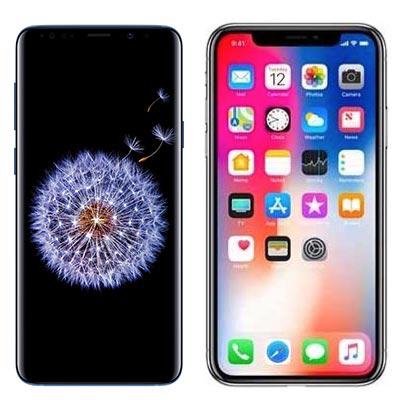
Face Off
Apple may have made some big moves on design and features with the iPhone X, but Samsung isn't one to be upstaged. With the Galaxy S9+, Samsung is serving up an array of new features to offer a stiff challenge to Apple's iPhone redesign. In particular, the Galaxy S9+ provides an even larger display and an impressive camera to rival the iPhone X and possibly make iOS fans think more seriously about switching to Android. Which of the new phones is the better fit for your life? What follows is our comparison of the Samsung Galaxy S9+ vs. Apple's iPhone X on specs and price.
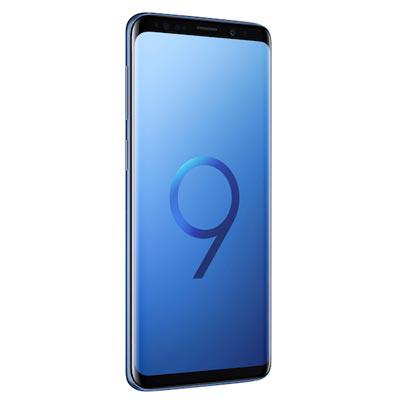
Display
As mentioned, the Samsung Galaxy S9+ has the size advantage over the iPhone X. The S9+ display measures 6.2 inches vs the 5.8-inch size of the iPhone X. Apple is catching up with Samsung's long-running use of OLED display technology with the iPhone X, which offers more colorful images than on previous iPhones thanks to the adoption of OLED. The Galaxy S9+, like previous Galaxy models, uses Samsung's bright and colorful Super AMOLED display technology. The Galaxy S9+ display also offers higher resolution, 2,960 x 1,440 pixels, compared to the 2,436 x 1,125 screen on the iPhone X.
What may matter the most to your decision, though, is which overall display design you prefer. The Galaxy S9+ is closer to having a true "edge-to-edge" display with minimal bezels above and below it. The iPhone X also has small bezels but has included a cutout at the top of the screen for the front-facing camera and other sensors. Not everyone likes the "notch" -- something Samsung executive Justin Denison joked about during the Galaxy S9+ debut, saying that "as always, there's no notch" on the phone's display.
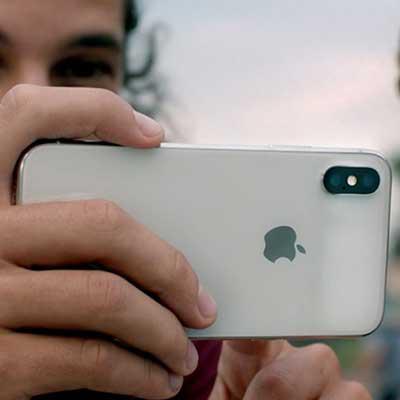
Camera
Both Apple and Samsung point to the cameras as highlights of their devices. Research firm DxOMark is siding with Samsung, however, giving the Galaxy S9+ the firm's highest rating ever for a smartphone camera (though the iPhone X is not far behind in third place).
The Galaxy S9+ and iPhone X both feature a dual camera setup on the rear side, of 12-megapixel telephoto and wide-angle cameras with optical image stabilization. The Galaxy S9+ stands out with its dual-aperture feature, which automatically adjusts to dim or bright lighting conditions. The S9+ also offers "live focus" for the automatic blurring of a photo's background and some fancy slow-motion video capabilities. The iPhone X offers camera features such as "portrait lighting," which provides better lighting for the contours of a person's face, as well as cameras that are calibrated for use with augmented reality.
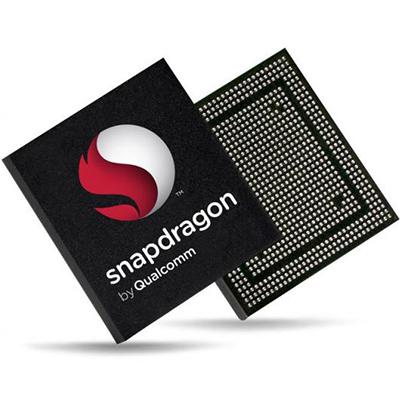
Processor, RAM & Storage
Not surprisingly, both the Galaxy S9+ and iPhone X feature speedy new processors. The eight-core Qualcomm Snapdragon 845 chip that's used in the Galaxy S9+ features a clock speed of up to 2.8GHz, while the six-core A11 Bionic in the iPhone X has been clocked at up at a lesser speed of 2.39GHz. Samsung also packs more RAM into the Galaxy S9+, 4 GB, than Apple does for the iPhone X, which has 3 GB. Benchmark tests, however, reveal a different story about performance, with the iPhone X coming out well ahead of the Galaxy S9+ on speed.
Both the iPhone X and Galaxy S9+ come with 64 GB of internal storage at the base level. There's also a 256 GB model of the iPhone X, while the Galaxy S9+ has a slot for an optional microSD card that can add up to 400 GB of storage space.
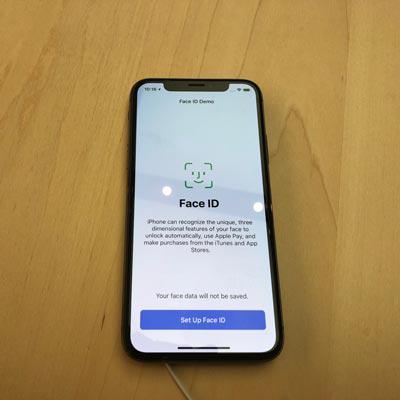
Biometrics
When Apple introduced Face ID facial recognition for authentication on the iPhone X, the company was actually following the lead of Samsung, which has been offering facial recognition in the past few Galaxy releases. Apple is using Face ID as the only biometric choice for the iPhone X, though. On the Galaxy S9+, it's one of several options, the others being iris and fingerprint scanning. Samsung also says it's offering a faster biometric option, called Intelligent Scan, which combines facial recognition and iris scanning.
Also worth mentioning is that Samsung has moved the Galaxy S9+ fingerprint scanner to a location directly below the camera on the back of the phone, a change from its unpopular placement next to the camera on the Galaxy S8.
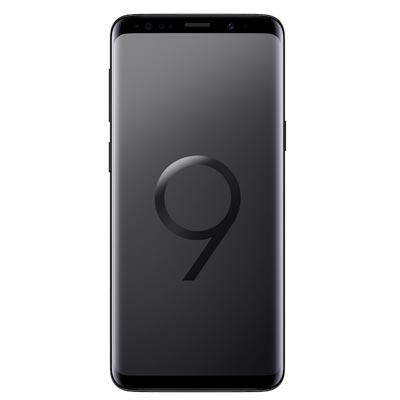
Battery Life & Charging
Samsung hasn't estimated the battery life for the Galaxy S9+, but it should be in the ballpark of the 15 hours (over LTE) of the Galaxy S8+, as the two devices come with the same battery size. Apple promises less battery life, equaling 12 hours of Internet use, for the iPhone X.
Both the Galaxy S9+ and iPhone X feature wireless-charging capabilities, with the devices chargeable by placing them on a Qi charging pad (sold separately).
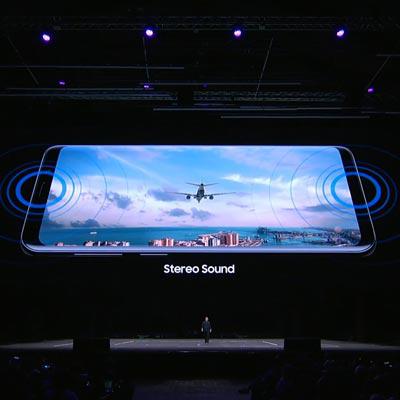
Audio
Unlike the iPhone X, Samsung is keeping the 3.5mm headphone jack on the Galaxy S9+. The iPhone X will need a Lightning adapter to connect wired headphones. And, based on our experience, this small adapter is easy to lose.
In terms of the phones' audio systems, both the iPhone X and Galaxy S9+ boast stereo speakers. Samsung also says the S9+ speakers have the benefit of special tuning by acoustics expert AKG, as well as Dolby Atmos surround sound.

Price & Availability
In the run-up to the unveiling of the Galaxy S9+, rumors had circulated that Samsung might be hiking the price of the new Galaxy S devices. The reasoning went that Samsung would be bringing the new Galaxy S devices closer to the pricing of the iPhone X, which has a starting price of $999. However, Samsung didn't end up going that route. An unlocked Galaxy S9+ has a price of $840, which is only $15 more than its predecessor, the S8+. It represents a 16-percent lower price than the iPhone X, even though the S9+ features a larger display, a new-and-improved camera system and enhanced speakers.
The 256 GB model of the iPhone X is priced at $1,149, while getting a 400 GB microSD card for the S9+ from SanDisk will add $230 to the price.
The Galaxy S9+ starts shipping on March 16, and is in pre-orders as of this writing.